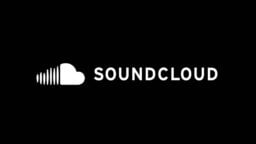
Electronic Music has been a critical genre to SoundCloud throughout the service’s start-up phase and now provides the vast majority of its content.
So it goes without saying that the Association for Electronic Music (AFEM) supports the principle that a company valued at $1.4B should recognise its duty to pay publishers and writers for the right to use our genres music.
To that end, PRS for Music’s legal action has our support.
But this lawsuit isn’t just an opportunity to set an important licensing precedent, it’s an opportunity for PRS for Music and SoundCloud to set a key precedent for the quality and quantity of data in the music industry.
“Any licence between prs for music and soundcloud will be a hollow victory for our writers and publishers if royalties are not paid out on a ‘per play’ basis.”
Over the last 10 years, this business has seen a steady erosion in the data needed to accurately pay out digital streaming revenue.
This is an opportunity to reverse that erosion.
With estimates placing electronic music at 60% of SoundCloud’s overall content, any agreement regarding a licence between PRS for Music and SoundCloud will be a hollow victory for our writers and publishers if royalties are not paid out on a ‘per play’ basis.
The poor quality data currently stored on SoundCloud will make it impossible for PRS for Music to identify the music accurately and as a result, AFEM expects less than half of SoundCloud’s content to get paid out ‘per play’.
So why is the music industry in a situation where so many people writing, making and releasing music are not getting paid?
We have to look to history to understand.
20 years ago the industry looked liked this:
- Songwriters wrote songs and looked to sign them to a music publisher.
- Music publishers found recording artists and musicians to make sound recordings of the songs they published. Lets call these ‘tracks’.
- Recording artists recorded the tracks and signed them to record labels.
- Record producers often worked for record labels and made sure the tracks sounded ‘right’.
- Record labels pressed the tracks onto vinyl and CDs and arranged for the retail stores to sell them, via distributors.
- Retail Stores sold the music and agreed to pay the record labels for the product, via the distributors.
- Mechanical Copyright societies licensed the labels and made sure that a royalty for every CD and Vinyl copy pressed was paid to the correct publisher and writer.
- Publishers would register their songs with Mechanical Copyright Societies and receive their royalties based on what was actually sold (as opposed to an estimate).
- Similarly, Performing Right Societies would make sure that plays of music at festivals, on radio and on TV got paid when they got played.
Throughout this time, a powerful tool made sure that record labels delivered the right data to the music industry: a piece of paper or an electronic file called ‘label copy’.
This contained details about each recording: track durations, credits, artist names, writer names, producers and publishers (i.e. metadata) – a licence to manufacture records could not be obtained without it.
Ten years ago, as the first download and streaming services emerged, most societies moved away from licencing labels and instead started licensing YouTube, Spotify, iTunes, Beatport and Traxsource directly – essentially licensing the record shops not the record labels.
… and with that single decision the record labels were no longer responsible as the gatekeepers of data in the music industry.
With the death of label copy as the mandatory source of data came the death of accurate metadata – and the start of a wild west when it came to royalty payments.
“Many pros pay out black box income using market share. In the case of soundcloud, this would be a ridiculous result.”
So for 10 years, the music industry has been unable to ‘pay per play’ on 100% of music streamed and even fails to pay per-download all too often.
Whilst many PRO payment policies will state ‘census’ payments are made, the figures never disclosed are how many streams, plays and %’s of the licence fees collected are paid correctly and how much of the value is ‘unmatched’ or ‘unpaid’.
Typically downloads are only automatically matched accurately to PRO databases 6 out of 10 times, so a service like SoundCloud will find it almost impossible to ‘pay per play’ without the use of Music Recognition Technology and a contractual demand for quality way higher than anything currently in place.
These un-matched royalties would be critical to writer and publisher livelihoods.
Where a PRO cannot find the owner of a work, the royalty collected will be placed in a pot or so-called ‘black box’.
PROs like PRS ask for help from publishers to see if the music owners can be identified – many PROs do not and simply pay out over market share. In the case of SoundCloud this would be a ridiculous result.
So the PRS v SoundCloud Legal case raises two important issues:
1) What can be done to ensure pay per play?
Despite the gloomy analysis, there are solutions, many of which are from AFEM members; BMAT Music Innovation, DJ Monitor, Dubset, Geo Track ID, Soundmouse and Trax Air, to name a few.
These companies identify sound recordings on air, in clubs and online, match them to a record label’s data and then match them to a song, and finally pass this information on so that the right people can get paid.
Dubset in particular already has deals in place with 9,000 rights-holders and is a service capable of identifying repertoire owners on both masters and publishing – the problem PRS is trying to solve.
In this new age in which the accurate allocation of publishing income to rights owners is possibly no longer viewed as a requirement or a fiduciary responsibility by some PROs, it is time for ALL involved to collaborate in order to bring the music industry truly into the digital age.
Technology and uniform accurate metadata standards must be developed.
2) Where should the many users leaving SoundCloud go now?
Since the PRS action was announced, social media streams have been filled with DJs and labels confirming their defection from SoundCloud to the nearest SoundCloud equivalents that are equally unlicenced and equally determined not to pay for music.
Surprisingly, PRS didn’t signpost its members and the industry to streaming sites it already licenses such as MixCloud, Digitally Imported and Beatport.
So What now?
The PRS for Music v SoundCloud legal action should be the landmark case for data driven allocation of publishing income. The moment when the music industry says ‘enough!’.
It should be the moment when one writer and/or one artist getting one play can be confident of earning one payment, however small.
It is unacceptable to have an industry work any other way – it’s time to catch up with food retail and mobile telco’s who nailed this data challenge years ago.
Simply put, all creators should get the cash they are owed.
We know it wont be easy and will require joined-up and intense effort from streaming services, download stores, tech companies, distributors, labels, publishers and PROs.
But if we all co-operate now, then our creators and artists won’t face such a bleak and unrewarding future.Music Business Worldwide





